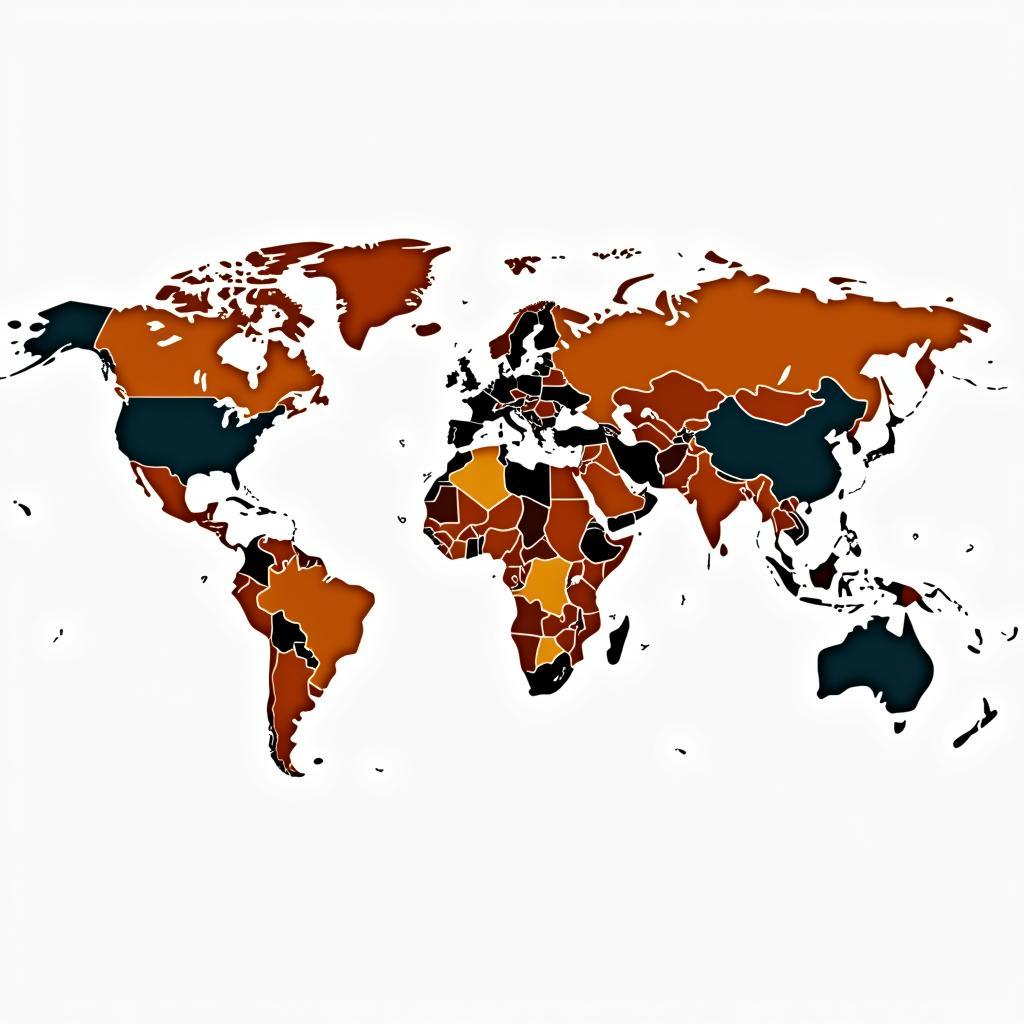The term “Information Society Definition” is one that piques the curiosity of many in our rapidly evolving digital age. It signifies a profound shift in how we live, work, and interact, propelled by the ever-increasing flow of information. But what exactly does it mean?
Decoding the Information Society: A Deep Dive
At its core, the information society definition revolves around the centrality of information and knowledge. It’s a society where the creation, distribution, and utilization of information, primarily through digital technologies, play a dominant role in economic, social, and cultural activities. This goes beyond simply having access to a wealth of data; it’s about using that information effectively to improve our lives and shape a better future.
Imagine a world where geographical boundaries become less relevant, where knowledge sharing is instantaneous, and where individuals are empowered to learn, create, and connect in ways unimaginable before. This is the promise and potential of the information society.
Key Characteristics of the Information Society
Several defining characteristics set the information society apart:
- Technological Advancement: The rapid development and widespread adoption of technologies like computers, the internet, and mobile devices form the backbone of this society.
- Information Abundance: We are inundated with an unprecedented volume of information available at our fingertips, accessible 24/7.
- Knowledge Economy: Information itself becomes a valuable commodity. Jobs and economic activities increasingly center around knowledge creation, processing, and management.
- Networked Society: Individuals, institutions, and even devices are interconnected, facilitating communication, collaboration, and the rapid flow of information.
- Digital Divide: A significant challenge is ensuring equitable access to technology and information, bridging the gap between the digitally included and excluded.
 Global Access to Information Technology
Global Access to Information Technology
The Impact of the Information Society
The rise of the information society has far-reaching implications:
- Economic Transformation: New industries emerge, traditional business models are disrupted, and the nature of work itself is redefined.
- Social Change: The way we communicate, form relationships, and engage with the world around us undergoes a fundamental shift.
- Cultural Evolution: The information society influences our values, beliefs, and perceptions, leading to greater cultural exchange and, at times, cultural homogenization.
- Educational Revolution: Learning becomes more accessible, personalized, and lifelong, with digital tools and online resources transforming traditional education models.
 Students Engaging in Online Learning
Students Engaging in Online Learning
Navigating the Challenges of the Information Society
While the information society offers tremendous opportunities, it also presents challenges:
- Information Overload: The sheer volume of information can be overwhelming, making it difficult to filter accurate and reliable sources.
- Privacy Concerns: The collection, storage, and use of personal data raise significant privacy and security concerns.
- Digital Literacy: Navigating the information society effectively requires digital literacy skills to critically evaluate information, identify misinformation, and use digital tools responsibly.
- Ethical Considerations: The development and deployment of artificial intelligence, algorithms, and other technologies raise complex ethical questions that require careful consideration.
Building a More Just and Equitable Information Society
To fully realize the potential of the information society, we must address these challenges head-on. This requires a multi-faceted approach:
- Promoting Digital Inclusion: Ensuring everyone has equal access to technology and digital literacy skills is paramount.
- Strengthening Digital Rights: Protecting privacy, freedom of expression, and access to information are essential pillars of a just information society.
- Fostering Media Literacy: Empowering individuals to critically evaluate information and navigate the digital landscape responsibly is crucial.
- Encouraging Ethical Innovation: Promoting the ethical development and use of technology ensures that it benefits all members of society.
 Bridging the Digital Divide
Bridging the Digital Divide
Conclusion
The information society definition is not merely an academic concept—it’s the reality we live in. By understanding its characteristics, harnessing its potential, and addressing its challenges, we can work together to shape a more informed, inclusive, and equitable future for all. As we continue to evolve with the digital landscape, embracing the values of dialogue, understanding, and empathy will be more important than ever in fostering a peaceful and interconnected global community.
FAQs About the Information Society
-
What are some examples of information societies? Many developed countries, particularly those with high levels of internet and technology penetration, exhibit characteristics of information societies. Examples include South Korea, Japan, and many European nations.
-
What is the role of education in the information society? Education plays a vital role in equipping individuals with the digital literacy skills necessary to thrive in the information society. It also fosters critical thinking, problem-solving, and adaptability – essential skills in a rapidly changing world.
-
How can we bridge the digital divide? Addressing the digital divide requires a multi-pronged approach, including:
- Investing in infrastructure to expand internet access in underserved areas.
- Making technology more affordable and accessible.
- Providing digital literacy training programs.
For further insights into related topics, explore these resources on our website:
Need support? Contact us:
Phone: 02043854663
Email: [email protected]
Address: Khu 34, Bắc Giang, 260000, Việt Nam
We have a 24/7 customer support team ready to assist you.